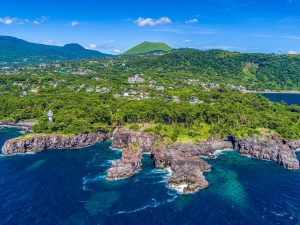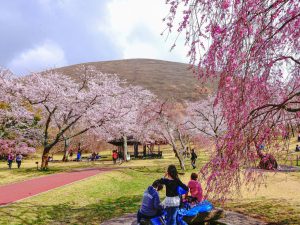When Mt. Omuro erupted, a large amount of lava flowed out, reclaiming the sea and creating a new land. On the coast around Oyodo and Koyodo, you can see columnar joints formed when lava cooled and solidified. The columnar joints here are large enough to accommodate several adults, creating a characteristic stepped terrain. Next to the columnar joints, there are two tide pools, which are called Oyodo, Koyodo. Baby fish and sea creatures live here, and you can enjoy playing at the rocky shores.
| |Area | Eastern Izu Area (Ito City) |
| |Geological Period | Jogasaki Coast created by lava flowing from Mt. Omuro about 4,000 years ago |
| |Itinerary | Hashidate Tourist Parking Lot→ Tajima Falls Observation Deck→ Obai Kobai→ Kasago-ne→ Oyodo, Koyodo → Hashidate Suspension Bridge→ Hashidate Tourist Parking Lot |
| |Distance | Approx. 2.5km |
| |Duration | Approx. 120 minutes |
| |Level | Trekking |
| |Meeting Point | Hashidate Tourist Parking Lot <MAP> |
| |Ending Point | Hashidate Tourist Parking Lot (same as meeting point) |
| |Participation Fee | Adults (junior high school students and older): 3,000 yen Elementary school children: 1,500 yen |
| |Number of Participants | 2 to about 10 people |
| |Reservation | Please make a reservation at least one week in advance. |
| |What to Wear/ bring | Comfortable clothing, footwear (no sandals), hats, drinks, etc. |
| |Notes | If there is rain, strong wind, or stormy weather, you will not be able to descend to Oyodo Koyodo. In that case, you may be asked to change the tour to E3-B. Please read about the cancellation policy. |
| |How to Apply | Please apply from the "Reservation Form" at the bottom of the page. |
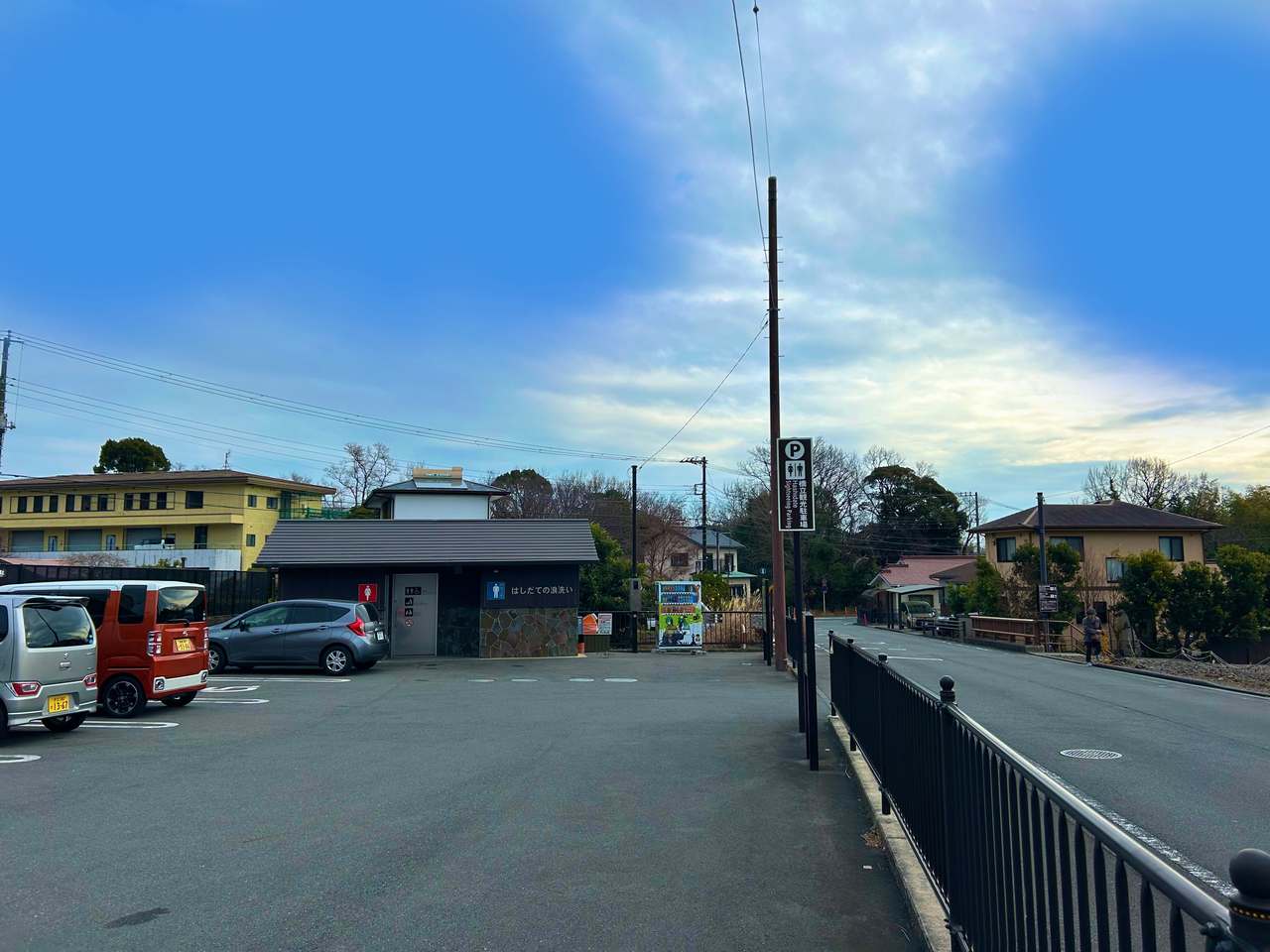
Hashidate Tourist Parking Lot
5 minutes’ walk from Izu Kogen Station. It is a parking lot for tourists to Oyodo, Koyodo and Hashidate Suspension Bridge.
↓
の滝展望台.jpg)
Tajima Falls Observation Deck
It is a rare waterfall where the Tajima River, which flows down from the foot of Mt. Omuro, falls directly from the cliff to the sea.
It is a great sight to see after heavy rain, but on other days with less water, it looks rather shabby. It is just a matter of nature. Good luck.
↓

Obai Kobai
You can see how the columnar joints of the beautiful landscape have become tunnels due to sea erosion. It is a popular photo spot.
↓
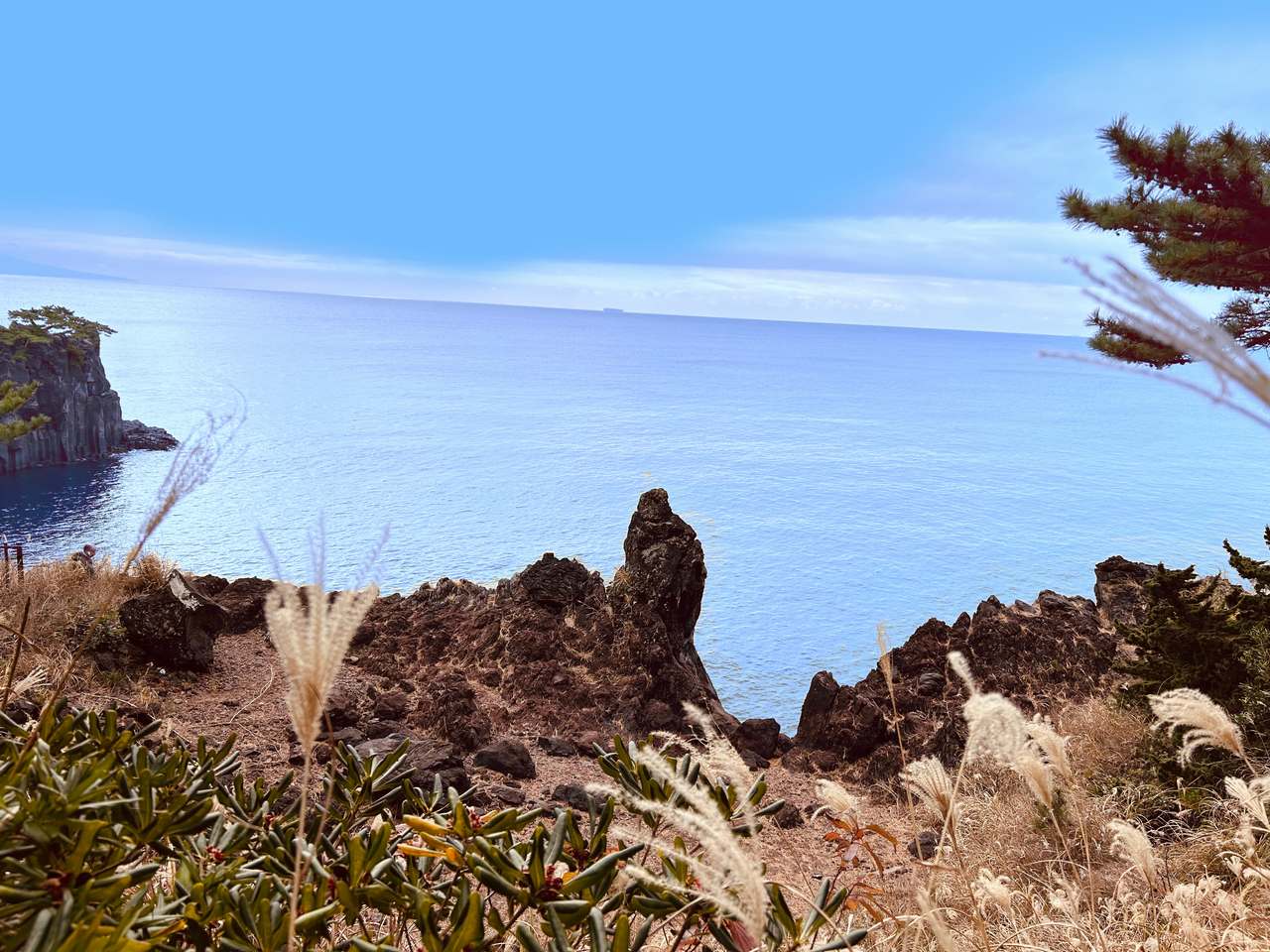
Kasago-ne
Hot lava flowing in liquid form solidifies from the surface as it flows. Once the lava has solidified, it breaks into pieces creating a rough terrain as it flows. When the rugged rocks are oxidized, their color turn into red, and they look lumpy just like the fins of rock fish “Kasago.” That is the reason why the rocks here are called Kasago-ne
↓

Giant columnar joints of Oyodo Koyodo
Columnar joints have regular cracks formed when lava slowly cools and contracts.
Here you can see huge columnar joints that can fit several adults, and you can jump from rock to rock in hexagonal shape. In the two tide pools called Oyodo and Koyodo, you can see fish and coral trapped and from early summer to autumn you can even observe the shore.
↓
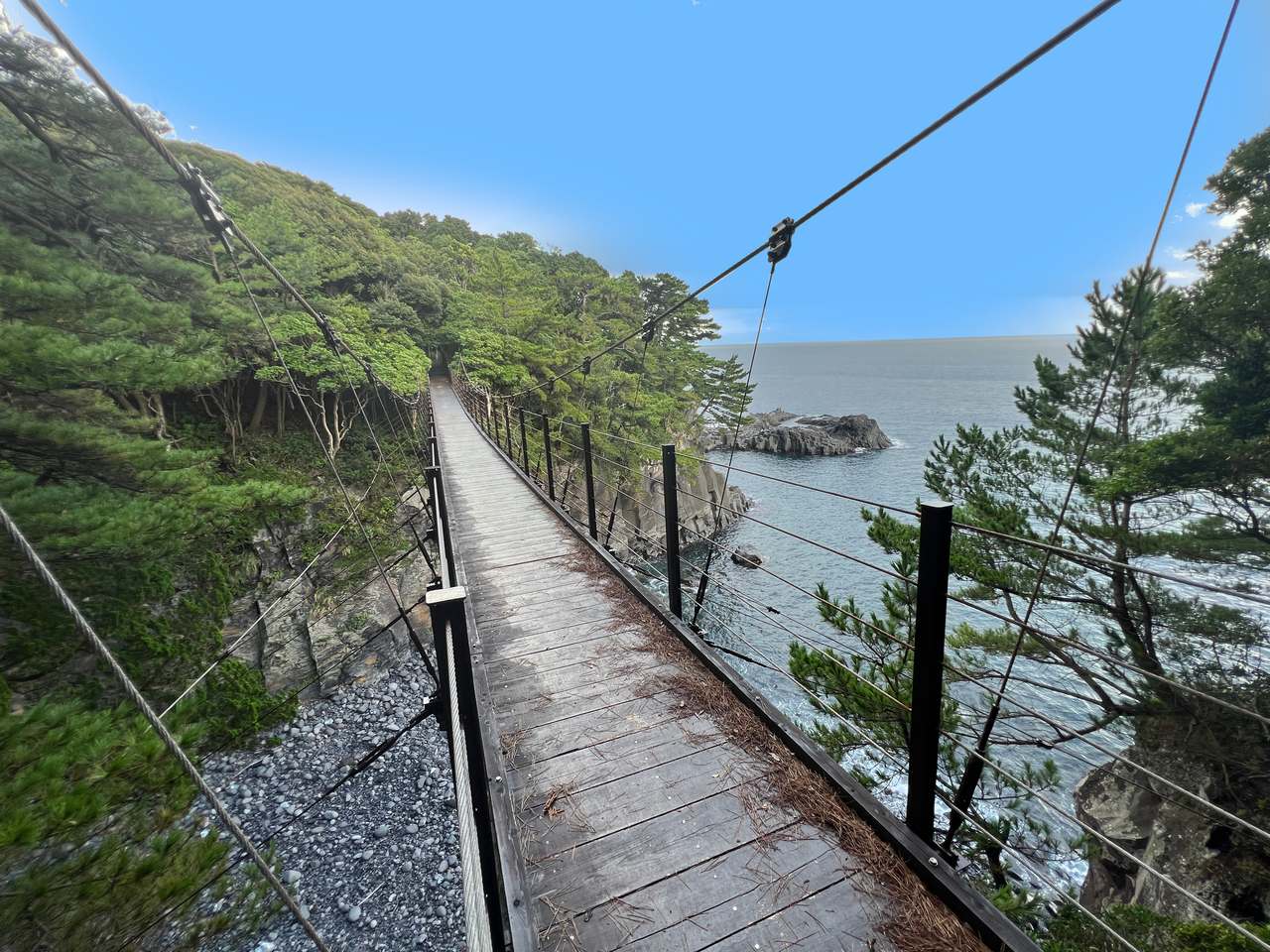
Hashidate Suspension Bridge
From the top of the Hashidate Suspension Bridge, you wil see Oyodo and Koyodo, the columnar joints of the small islands off the coast, and the Izu Islands in the distance.
You can experience quite a different thrill here from Kadowaki suspension bridge.

